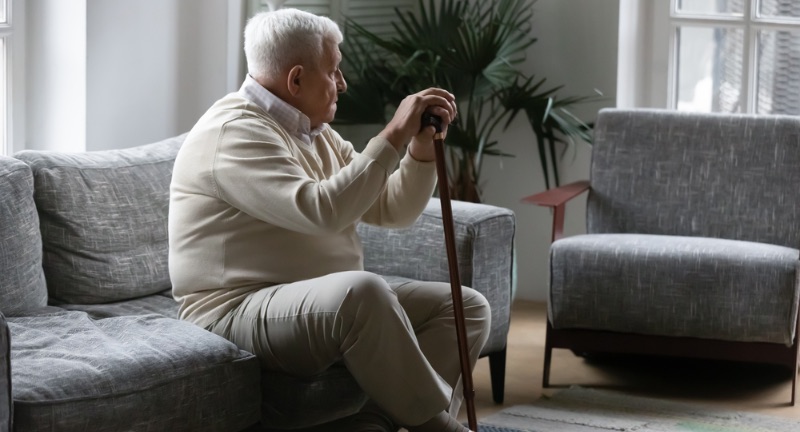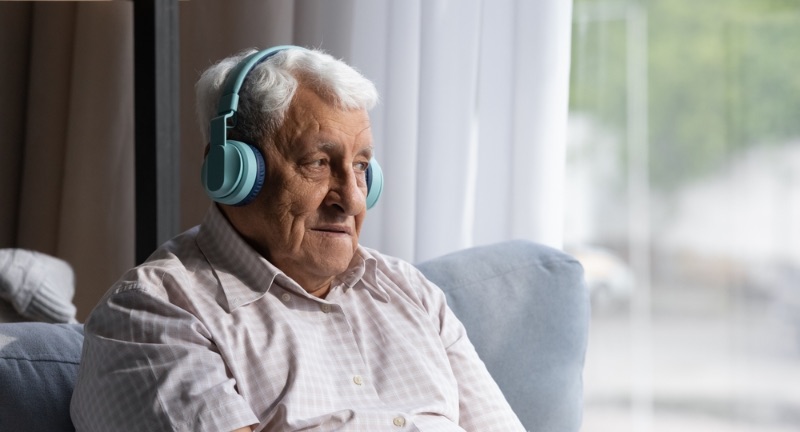NEWS
19 Valid Baby Boomer Gripes That Make Total Sense
Published
9 months agoon

Shutterstock
Younger generations frequently dismiss the concerns of older adults as mere resistance to change. However, it’s crucial to understand that these concerns are rooted in extensive experience with significant societal transformations. The perspectives of older individuals are both valid and insightful.
Recognizing their viewpoints involves appreciating the genuine challenges they encounter, rather than merely placating them. Let’s explore 19 common complaints from seniors that reveal substantial validity upon closer examination.
Scams And Safety

Shutterstock
Older adults frequently encounter a heightened risk of crimes, including scams and burglaries, which can significantly increase their anxiety and decrease their willingness to engage socially. This heightened vulnerability often undermines their sense of freedom and security, leaving them feeling unsafe in their own communities. To effectively address these issues, it is crucial to establish robust community safety protocols that can deter criminal activities targeting older adults. Additionally, providing comprehensive education on personal safety measures can empower them to protect themselves and regain confidence in their daily lives.
Healthcare Costs

Shutterstock
The growing demand for medical care and its escalating costs can be particularly overwhelming for elderly individuals, especially those on fixed incomes. This financial strain significantly affects their overall well-being, often leading to difficult choices between essential needs. The burden of these rising expenses underscores the critical necessity for more affordable and accessible healthcare solutions. Addressing this issue is vital to ensure that our aging population can maintain a good quality of life without the constant worry of medical costs.
Evolving Social Values

Shutterstock
Elderly individuals often feel disoriented due to the rapid changes in social values and norms, which can conflict with the cultural standards they were accustomed to during their upbringing. This sense of disorientation is exacerbated by the pace at which these societal shifts occur, leaving them feeling disconnected from the current social landscape. To bridge this gap, it is essential to foster open and respectful dialogues that embrace diverse generational perspectives. Such conversations can significantly enhance mutual understanding and strengthen the connections between different age groups.
Adjusting to Modern Changes

Shutterstock
The rapid advancements in society, technology, and the environment can be particularly overwhelming for older adults, often causing them to feel disconnected from the modern world. This sense of disorientation can lead to feelings of isolation and loss, as they struggle to keep up with the pace of change. To alleviate these challenges, it is crucial to establish robust support systems that help them adapt to these new realities. Providing education, resources, and community support can significantly enhance their ability to navigate these changes, fostering a greater sense of inclusion and well-being.
Medication Side Effects

Shutterstock
Elderly individuals often face complex health conditions that require multiple medications, which can lead to harmful interactions and side effects, potentially lowering their quality of life. To address these challenges, it is essential to enhance personalized care tailored to each individual’s needs. Additionally, ensuring easy access to healthcare providers is crucial for better medication management and monitoring. This approach can help mitigate risks and improve the overall well-being of elderly patients.
Memory Concerns

Shutterstock
Memory loss and cognitive decline have a profound effect on older adults, often hindering their ability to maintain independence and perform everyday tasks. These challenges can lead to significant disruptions in their quality of life, emphasizing the need for comprehensive care. By improving support networks through enhanced healthcare services and community programs, we can provide the necessary resources and assistance to address these cognitive health issues effectively. Such initiatives are vital in helping older adults manage cognitive decline and maintain a higher degree of autonomy and well-being.
Rapid Technological Advancements

Shutterstock
Older adults face significant challenges in keeping up with rapidly changing technologies. The constant stream of technological advancements often leaves them feeling frustrated and excluded, highlighting a gap in accessibility for this age group. This disparity underscores the need for more intuitive and user-friendly designs tailored to older users. Additionally, providing accessible educational resources is crucial in helping bridge this technological divide and ensuring that older adults can stay connected and engaged.
Inflation and Living Costs

Shutterstock
Elderly individuals on fixed incomes are struggling more than ever to manage the effects of inflation, which often exceeds their limited financial resources. The continual rise in prices for essential items like food and housing forces them to meticulously prioritize their spending, causing significant financial and emotional stress. This situation highlights the urgent need for adjustments in pension plans and social services to better match the increasing costs of living. By aligning these support systems with the reality of inflation, we can help alleviate the burden on elderly individuals and ensure their well-being.
Disrespect from Younger Generations

Shutterstock
Many older individuals perceive a lack of appreciation in today’s society, feeling that their extensive knowledge and experiences are frequently disregarded. This sense of being undervalued often results in feelings of insignificance and isolation among them. Despite this, their rich life experiences provide invaluable insights that can greatly benefit others. When these contributions are acknowledged, it can lead to enhanced respect and understanding between generations.
Physical Mobility Issues

Shutterstock
As people grow older, they often experience a decline in physical mobility, which significantly impacts their capacity to stay independent and engage in social activities. This issue is exacerbated by architectural barriers and public spaces that lack proper accessibility, further deepening their sense of isolation. To address this, it is crucial to redesign and adapt our infrastructure to be more inclusive and accommodating for those with mobility challenges. Such modifications will help ensure that older adults can maintain their independence and continue to participate actively in their communities.
Modern Entertainment

Shutterstock
Many seniors feel that modern entertainment choices, including contemporary music and current TV shows, lack the relatability and charm of the classic options they cherished in their youth. This sense of disconnection can leave older generations feeling alienated from today’s cultural landscape. Creating cross-generational content that incorporates elements appealing to both older and younger audiences can help bridge this gap. Such inclusive content not only fosters a sense of unity but also broadens the appeal and relevance of entertainment across different age groups.
Lack of Independence

Shutterstock
Requiring assistance with daily activities can significantly impact the self-esteem and overall well-being of senior citizens, often leading to feelings of diminished autonomy and self-worth. This dependence on others can alter family dynamics, potentially creating a heightened sense of being a burden to loved ones. Encouraging the adoption of technologies that promote independence, such as smart home devices and mobility aids, can mitigate these negative effects by fostering a sense of self-sufficiency. By supporting seniors in maintaining their independence, these technologies can enhance their quality of life and preserve healthier, more balanced family relationships.
Noise Pollution

Shutterstock
Older adults, particularly those suffering from hearing conditions like tinnitus, frequently experience heightened sensitivity to noise, which can make urban settings particularly challenging for them. The constant barrage of noise from traffic and construction can transform environments that might otherwise be manageable into distressing and overwhelming spaces. As a result, their concerns about noise pollution are not just complaints but are deeply tied to genuine physical discomfort and distress. Understanding this connection highlights the importance of addressing noise pollution to improve the quality of life for these individuals.
Isolation and Loneliness

Shutterstock
Older adults, particularly those suffering from hearing conditions like tinnitus, frequently experience heightened sensitivity to noise, which can make urban settings particularly challenging for them. The constant barrage of noise from traffic and construction can transform environments that might otherwise be manageable into distressing and overwhelming spaces. As a result, their concerns about noise pollution are not just complaints but are deeply tied to genuine physical discomfort and distress. Understanding this connection highlights the importance of addressing noise pollution to improve the quality of life for these individuals.
Changes In Communication

Shutterstock
The shift to digital communication has left many older adults feeling disconnected from their social circles, as they may struggle to adapt to new technologies. This sense of isolation can lead to decreased social interaction and a feeling of being left behind in an increasingly digital world. To address this issue, incorporating more traditional communication methods, such as phone calls and in-person visits, can help bridge the gap between generations. By doing so, we can ensure that individuals of all ages remain engaged and connected, fostering a more inclusive and supportive community.
Accessing Digital Services

Shutterstock
The complexity of modern technology frequently alienates older adults, making it difficult for them to access essential services and maintain social connections. This digital divide can lead to feelings of isolation and frustration among seniors who struggle to navigate sophisticated tech systems. To bridge this gap, it’s crucial to design user-friendly technology that caters specifically to the needs and capabilities of the elderly. By prioritizing intuitive interfaces and providing comprehensive support, we can ensure that seniors remain connected and empowered in an increasingly digital world.
Housing and Accommodation Issues

Shutterstock
Seniors encounter substantial difficulties when trying to secure affordable and suitable housing. These challenges highlight the importance of developing policies that ensure access to living spaces that cater to their specific physical requirements. Moreover, housing for seniors should be located in areas that meet their proximity needs, such as being close to healthcare facilities, public transportation, and community services. Addressing these needs through thoughtful policy changes is essential to improving the quality of life for the aging population.
The Healthcare System

Shutterstock
Navigating the complexities of the healthcare system can be particularly overwhelming for older adults, who often need to manage a variety of insurance policies and treatment options. This challenge can lead to significant confusion and stress as they attempt to make informed decisions about their care. To alleviate these difficulties, it is crucial to enhance the patient experience by improving communication between healthcare providers and patients. Additionally, offering robust patient support systems can ensure that older adults receive the guidance and assistance they need to navigate their healthcare journey more effectively.
Conclusion

Shutterstock
Seniors have undergone significant changes and challenges, granting them unique insights and perspectives. Acknowledging their concerns underscores the need for a society that respects and supports its elder members. Integrating technological advancements with empathy allows us to create inclusive solutions. These solutions can enhance intergenerational understanding and foster better collaboration among all age groups.
More Money + Investing
-


30 Little-Known Facts That Make the Kentucky Derby Unforgettable
-


Biden Aims for Historic High with 44.6% Capital Gains Tax…
-


15 Powerful Arguments to Ban Electric Cars Permanently
-


25 Scams Aimed Squarely at Seniors
-


15 Bad Habits Keeping You From Being A Millionaire
-


24 Items That Are Too Pricey for Shoppers Now
-


30 Forgotten Thrifty Habits Worth Reviving
-


21 Brands That Have Stirred Up The ‘Woke’ Debate
-


21 Electric Vehicle Problems Owners Discover Months After Buying
-


Unmasking Kirkland: The Big Brands Behind Costco’s Best Buys
-


20 Witty Reasons Mature Women Are Choosing the Single Life
-


21 Energy-Hungry Home Gadgets That Spike Your Monthly Power Bill
